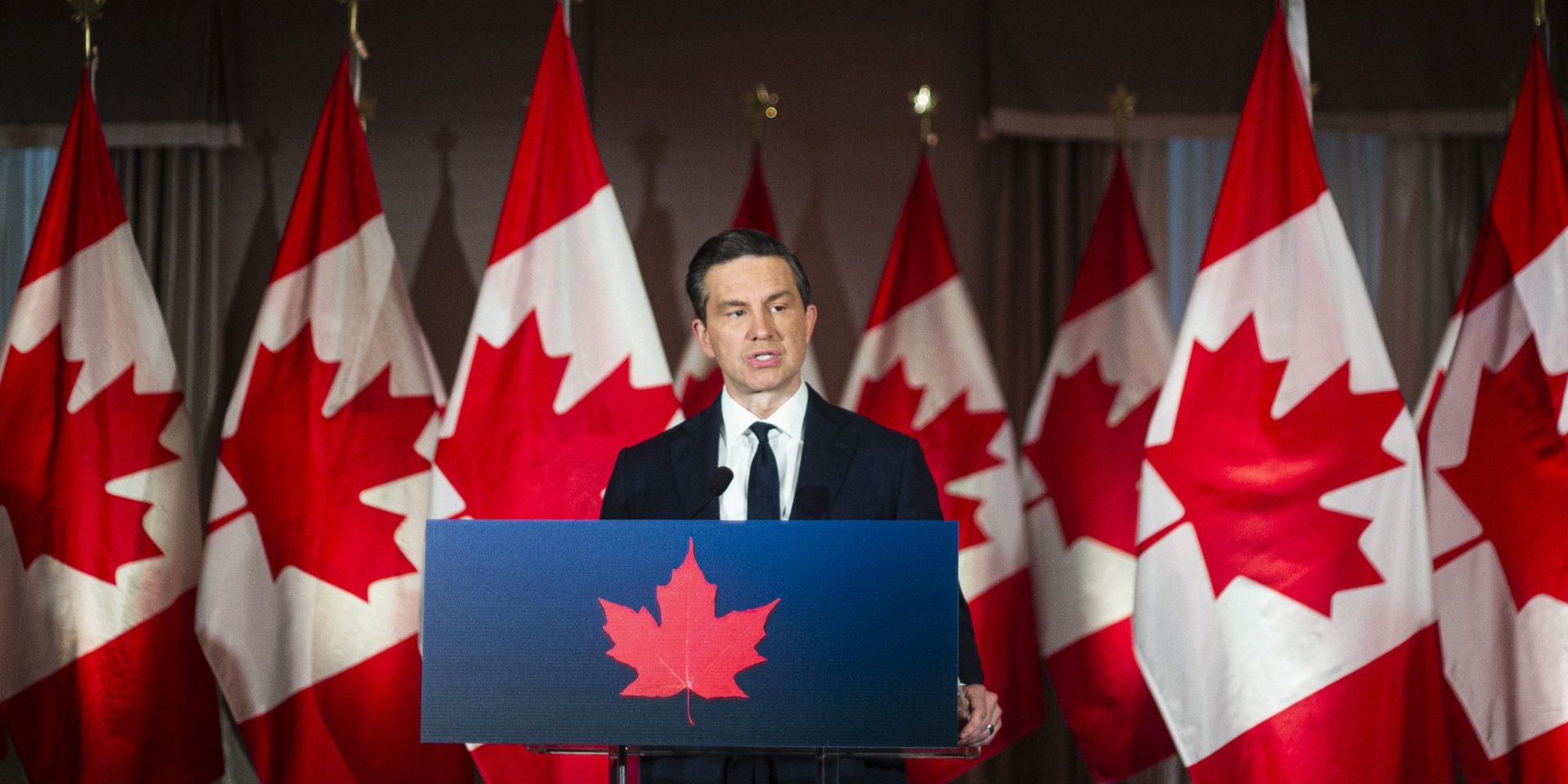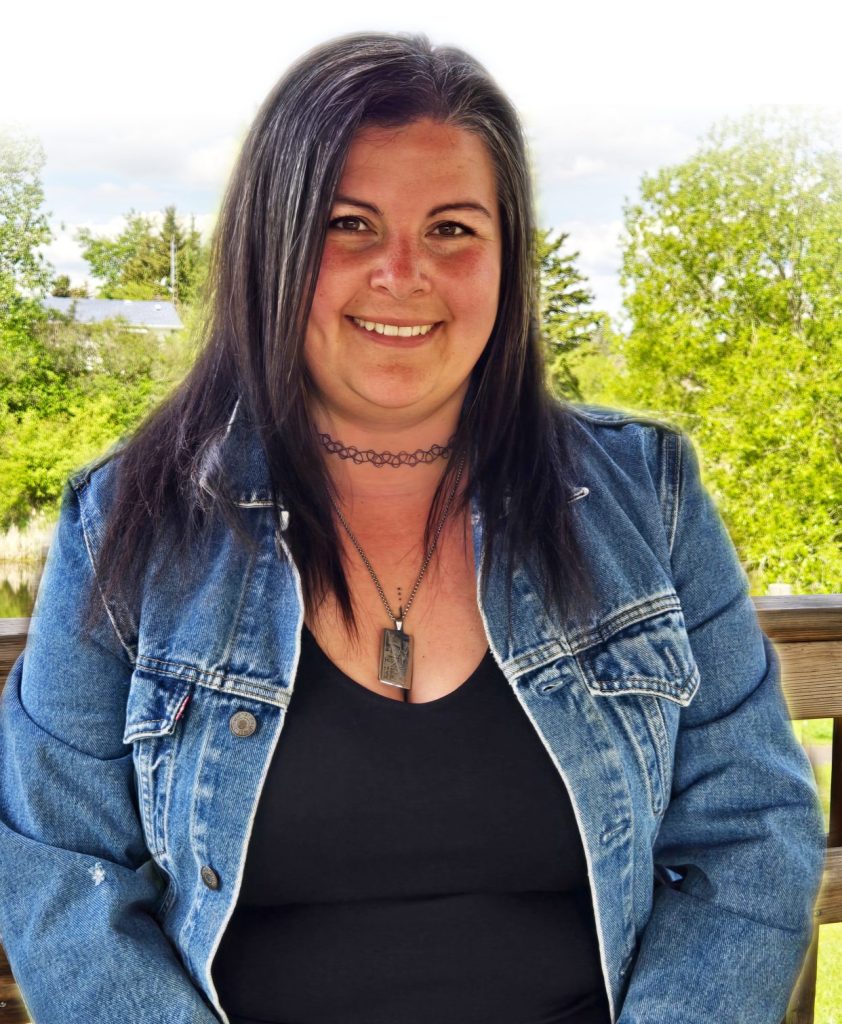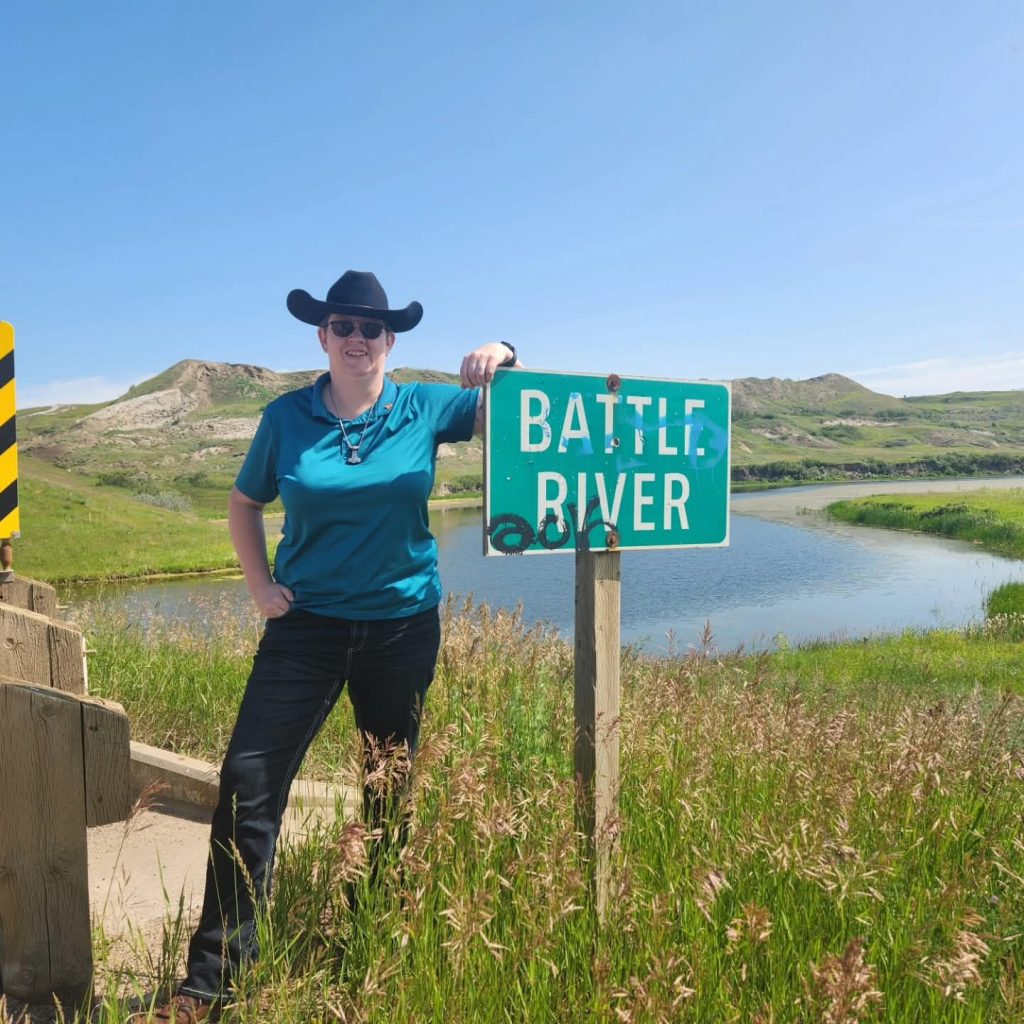‘He’s using us’: independent byelection candidates say ‘frustration’ getting ‘louder’ over Poilievre parachuting into Alberta riding

The upcoming byelection in Battle River–Crowfoot, Alta., is Conservative Leader Pierre Poilievre’s potential ticket back into the House of Commons. But the competition says Poilievre is out of touch with the rural riding, and that his victory is far from guaranteed.
The byelection was called on June 30 after former Conservative MP Damien Kurek announced his resignation to make way for Poilievre to run.
Sarah Spanier, a first-time independent candidate, was compelled to run in the Aug. 18 contest after Kurek’s departure, saying it left people in her community feeling like pawns in a political game. She told The Hill Times “more and more people are getting very vocal about their frustration” over Poilievre parachuting in as an Alberta candidate after losing the Ontario seat he held for two decades in April.
“It’s honestly nice to hear that people are starting to realize that he’s using us,” she said, adding many were “angry” following Kurek’s resignation.
“Voters overwhelmingly supported Damien only to have that choice ripped away on a whim because Pierre got fired from his home riding, and now he feels he can use Battle River—Crowfoot as some type of political pawn, assuming that riding is a guaranteed win,” she said.
“I personally find that really insulting,” said Spanier, who has since told The Canadian Press she has stopped door-knocking due to death threats she attributes to her advocacy on trans rights.

Poilievre is currently set to run against at least nine other candidates, not including those running as part of a protest effort organized by the Longest Ballot Committee. Along with Spanier, the other candidates are: independent Bonnie Critchley, United Party of Canada’s Grant Abraham, Libertarian Party of Canada’s Michael Harris, Christian Heritage Party of Canada’s Jeff Willerton, the Green Party’s Douglas Gook, New Democrat Katherine Swampy, Liberal candidate Darcy Spady, and the People’s Party of Canada’s (PPC) Jonathan Bridges.
An additional 72 candidates listed as running are associated with the Longest Ballot Committee. The group says it’s aiming to get “somewhere around 200” candidates on the list after getting 91 candidates on the ballot in Poilievre’s former riding of Carleton, Ont., back in April.
Spanier said she’s running as an independent because her riding needs an MP who cannot be forced to step down because of party ties.
“It’s time that we listen to the people of Carleton. They did see who [Poilievre] really was,” said Spanier, who has lived in the riding for a year.
Critchley, a retired veteran, told CBC’s Power & Politics she’s running for similar reasons.

“We just had an election, and we spent all that money, and we elected the candidate of our choice who promptly turned around and said ‘no, I don’t want that mandate I asked you for,’” she said in a July 15 interview.
“We’re spending another $2-million to vote in the angry guy from Ottawa who doesn’t know jack about this area.”
Both Critchely and Spanier said they think it’s important that their MP is familiar with the riding and understands the community’s needs.
“It’s a whole different way of [living] than living in an urban area,” Spanier said of rural Alberta, noting that she has a lot of “quiet support” in her community that she thinks gives her “a good shot” at winning.
Poilievre’s margin of victory could affect leadership review, says professor
Battle River–Crowfoot is a riding with a strong Conservative electoral history, having voted blue since its creation in 2015. Kurek won the seat handily three times in a row. During the April 28 election, he secured the seat with a whopping 82.8 per cent of the vote, achieving the second-highest winning margin for a Tory candidate in the country.
Lori Williams, a political scientist and professor at Mount Royal University, said it’s likely Poilievre will win given the area’s strong Conservative support, and given that Kurek has been campaigning alongside him. But the leader’s winning margin could impact his future.
“The question is: will the margin of victory be diminished? Will all of this factor into people’s decisions about who they want as leader?” Williams highlighted, pointing to Poilievre’s upcoming leadership review in January 2026, which will take place at the party’s convention in Calgary.
If Poilievre wins by a slimmer margin than Kurek, “it could raise questions amongst those who wonder whether he’s got the ability to carry them successfully through another election,” Williams said.
She also noted the support Critchley has amassed, which could cut into Poilievre’s vote share and decrease his margin of victory. Critchley’s critiques of both Kurek and Poilievre appear to be “really resonating in some circles,” Williams said, predicting the independent will come in second, and the PPC’s Bridges will gain votes compared to his results in the spring election.
Bridges finished fourth on April 28, with 1.6 per cent of the vote, and told The Hill Times he also expects his support to increase. Still, he conceded it’s a “safe bet” that Poilievre will win.
“I do feel like the People’s Party is poised to gain a lot in this election,” said Bridges, who has lived in the riding his entire life. “We are a conservative-based party, and a lot of people agree with our policies—a lot of people that are scared that if they don’t vote for the blue party, then the Liberals will win.”

The Green Party’s Gook is also running on Aug. 18 after finishing fifth in April, taking home only 0.7 per cent of the vote. Gook currently lives in British Columbia, but said he has “strong connections” to the riding and has worked with horse farms in the area.
Gook told The Hill Times he wants to “honour” Kurek, noting Green Party Leader Elizabeth May (Saanich–Gulf Islands, B.C.) “had a wonderful working relationship with him.”
“It must have been a very, very difficult choice for him, considering his popularity and his long-standing commitment to that riding,” Gook said. “To be usurped by the upper party brass [and] basically forced to resign. I think that is a tragedy in many respects.”
Kurek has previously said his decision to step down is only temporary, and that he will run again in the region, which calls into question where Poilievre might run in the future, should he secure a seat and remain the party’s leader.

Gook said he wanted to run in the byelection for Conservative Party members who want to see a leadership contest “as fast as possible.” The race also presents an opportunity for the riding’s voters to send a message that “Alberta is really concerned about the climate emergency,” he added.
Both the NDP and the Liberals are running new candidates. The New Democrats’ Swampy, a band councillor for the Samson Cree Nation and an Indigenous activist in the province, ran in Leduc–Wetaskiwin, Alta., in April, losing to incumbent Conservative MP Mike Lake, and placing third with a 6.1 per cent share of the vote.
A spokesperson for the NDP said Swampy was unavailable for an interview.
Spady, the Liberal candidate, is a local who grew up in the riding, and who works as a petroleum engineer.
A Liberal Party release from June 30 quotes Spady as saying “it’s time to build, to be bold and ambitious, and I’ve seen firsthand how our region can lead the way,” adding that he’s running to “build a stronger Alberta and Canada.” Spady could not be reached by The Hill Times by deadline.
‘Critchley comes well before Poilievre’ on the ballot: Williams
Poilievre has lashed out about the Longest Ballot protest efforts, saying he wants election laws changed to prevent ballots of the length seen in Carleton, and now Battle River–Crowfoot.
“This is a scam. It’s unfair, it is unjust, and it must stop,” the Conservative leader said at a July 11 town hall in Stettler, Alta., which is in the riding. He suggested changing the rules to increase the number of signatures required to run from 100 to 1,000, and only allowing voters to sign one nomination form.
The Longest Ballot Committee has denounced his suggested reforms. In a statement that wasn’t attributed to a group representative, it called the reform “dangerous,” as well as “ill conceived and self-serving.”
“[W]hen it comes to election law, politicians just have too much skin in the game to be calling the shots,” the statement reads, noting that requiring 1,000 signatures would turn “every election into a two party race,” and also claiming that elections “in safe ridings, like Battle River–Crowfoot, we would likely see no election at all.”
Williams said the group’s efforts have the potential to impact the byelection’s outcome, if only by virtue of the alphabet.
“It can make things a bit more onerous, more complicated,” she said. “That said, it’s going to take time to find anybody’s name on that ballot, but Critchley comes well before Poilievre. So, who knows? That could be a factor.”
But Williams emphasized that the primary factor in the byelection will be turnout.
“If somebody really captures the imagination of the voters here—that’s really the unknown quantity.”
ewand@hilltimes.com
The Hill Times






 LICENSING
LICENSING PODCAST
PODCAST ALERTS
ALERTS













